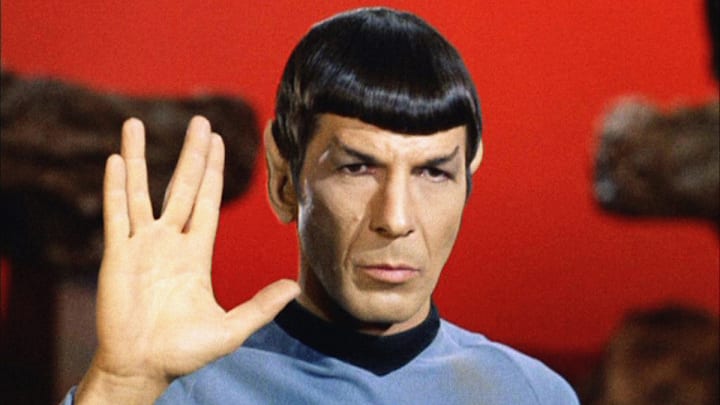Star Trek: The Original Series first aired on Sept. 8, 1966, and with it came incredible changes to our world. A silly, campy little television show allowed people to dream of a future that would be progressive and positive, rather than the common apocalyptic scenarios. Advancements in science, technology, and human rights were all directly impacted by Gene Roddenberry's science fiction series.
Now, nearly 60 years later, Star Trek has become more than just a popular franchise. It continues to inspire hope and curiosity. We have boldly gone farther than we could have ever imagined because of Star Trek, and the future only looks brighter.

Advancements in science and technology
Several modern-day inventions that we take for granted today can actually trace their roots to Star Trek. Automatic sliding doors, cell phones, Bluetooth earpieces, tablets, 3D printers, and many more were only imagination in 1966, but have since been brought into reality. Steve Wozniak, a founder of Apple, even said that he wouldn't have had the inspiration to create the tech he has without Star Trek.
Science and medicine also owe Star Trek for advancements made since the original series aired. Biometric health data and hyposprays exist to further healthcare. Space exploration was another area that took massive inspiration from Star Trek, and NASA often worked with the franchise when recruiting astronauts and engineers.

Social commentary and culture
Star Trek did not shy away from heavy topics like genocide, slavery, gender identity, and xenophobia. But, having these things presented in the context of aliens in space provided a non-threatening way to make social commentary. Using symbolism, Star Trek taught many generations how to think critically and examine the world around them.
The effects of Star Trek on our culture and society can be seen everywhere. My college professors played certain episodes to teach philosophy and logic lessons. Memes that have nothing to do with Star Trek but still use the images have been some of the most popular. And the "Vulcan salute" is even an emoji!

Women's rights
Star Trek has depicted women in leadership and other working roles, treating them as equally competent as men. This marked a huge change from the portrayal of female characters in other media of the time.
While some critics argue that the female uniforms for the Star Trek crew were objectifying, they actually reflect the feminist movement and sexual revolution. Mini skirts were seen as extremely progressive in the '60s, and the women of Star Trek were able to show that they could be both feminine and intelligent.

Diversity
Star Trek: The Original Series was one of the first American TV series to feature an interracial cast in main roles. The communications officer, Uhura (Nichelle Nichols), was a Black woman. Helmsman Sulu (George Takei) was of Japanese descent. And Chekov (Walter Koenig) was a Russian bridge crew member when the Cold War was happening in real life. The crew worked together diligently and harmoniously, which was a novel approach when Star Trek first aired.
Star Trek was also the first American program to feature an interracial kiss on screen. The kiss between Uhura (Nichols) and Captain Kirk (William Shatner) created quite a stir in 1968. However, it led to greater openness and more progressive views on interracial couples.

Disability representation
Another progressive view inspired by Star Trek is that of disability. Instead of portraying a future where disability doesn't exist, Star Trek shows how to successfully accommodate disabilities. Characters with disabilities are shown to have unique strengths, and they are just as capable as non-disabled characters.
Geordi La Forge is the greatest example of accommodating disabilities, though there are many others. His blindness is never cured or magically fixed. His visor, and later his implants, are medical devices that make things accessible for him. La Forge is not a character to be pitied or seen as undesirable. That positive representation of disability can be difficult to find even today.

A brighter future
In order to share social commentary and warnings for the future, most science fiction was bleak in its imaginings. Roddenberry came along and flipped the script, showing all the good that the future might hold. It is that optimism that allowed Star Trek to make a lasting impact on how we choose to shape our world.
Star Trek portrayed alien races working together for peace and for the good of all. They showed us a group of beings who had no poverty and considered one another equals. It showed a discussion of humanity and morals without cynicism. Star Trek gave us hope for what we can achieve together, and it continues that vision of a brighter, kinder future.
These are just a few of the ways Star Trek has shaped us. Because the Enterprise and Starfleet went where no man had gone before, we can find the courage and motivation to carry us forward into the unknown. And maybe, we'll find the future is as hopeful as Star Trek made it out to be.
